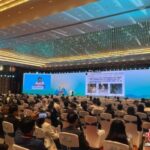In accordance with the unified deployment of the Central Committee and the State Council, the Central Ecological and Environmental Protection Inspection Teams conducted the first round of central environmental protection inspections in 2016, and the second and third rounds of central ecological and environmental protection inspections in 2019 and 2024, respectively. Based on the feedback from these inspections, the city formulated rectification plans for the first round of central environmental protection inspections and the second and third rounds of central ecological and environmental protection inspections, which have been approved by the Central Committee and the State Council.
By the end of 2024, all rectification tasks for the first round of central environmental protection inspections and the second round of central ecological and environmental protection inspections had been fully completed. The rectification work for the third round of central ecological and environmental protection inspections has achieved phased results. Among these, the rectification tasks for “chaotic environmental management in end-of-life vehicle dismantling” and “prominent issues of falsification by testing institutions” have been completed. For the task concerning “inadequate protection of forest land,” illegal deforestation has been investigated and dealt with according to law, reforestation has been implemented, public welfare forest protection actions have been carried out, and the forest chief system has been continuously deepened and strengthened. For the task regarding “lack of supervision over ship and port pollution,” port and lock rectification work has been implemented, ship waste reception facilities have been reasonably allocated along the main stream of the Yangtze River, and the capacity for receiving ship pollutants has been optimized and enhanced. For the task on “failure to implement pollution control responsibilities for enclave enterprises,” additional land for biogas slurry irrigation has been added, environmental facilities for treating aquaculture wastewater have been constructed, and requirements for integrated crop-livestock cycling have been further standardized. For the task addressing “prominent issues with construction waste,” illegal disposal of construction debris has been investigated and dealt with according to law, and the entire process management of construction waste has been further strengthened. For the task on “water quality rebound in the Yangtze Estuary–Hangzhou Bay area,” the “one river, one policy” approach for rivers entering the sea has been orderly promoted, and special cooperation for joint protection and treatment of near-shore water quality in the Yangtze River Delta has been advanced. For the task concerning “delayed progress in Spartina alterniflora control,” Spartina alterniflora control projects such as those in Chongming North Lake have been completed. For the task on “inadequate air pollution prevention and control work,” violations such as vehicle pollution, dust pollution, and illegal corporate emissions have been investigated and dealt with according to law, and special campaigns for centralized control of volatile organic compounds (VOCs) from industrial enterprises have been carried out. For the task addressing “ineffective resolution of ‘key small matters’ close to the public,” city-wide special law enforcement actions at construction sites have been conducted, and the investigation and treatment of key points for road traffic noise have been continuously promoted. For the task on “widespread issues with cooking oil fume pollution,” convenient services for querying suitable restaurant locations have been launched, and classified rectification of catering enterprises has been advanced. For the task regarding “lenient and inaccurate identification of chemical industrial parks,” detailed implementation rules for the identification and management of chemical industrial parks in Shanghai have been formulated, and the identification of chemical industrial parks has been continuously carried out. For the task on “delayed progress in energy conservation and consumption reduction,” the Shanghai Action Plan for Accelerating Green and Low-Carbon Transformation (2024–2027) has been issued, and the phase-out of outdated high-energy-consuming electromechanical equipment has been continuously promoted. For the task addressing “shortcomings in sewage collection and treatment,” the construction of major projects has been continuously advanced, integrated operation and maintenance management of sewage “plants, stations, and networks” has been strengthened, the “one plant, one policy” approach has been used to improve the quality and efficiency of sewage treatment plants, and the “one river, one policy” approach has been applied to promote comprehensive treatment of key river channels.




